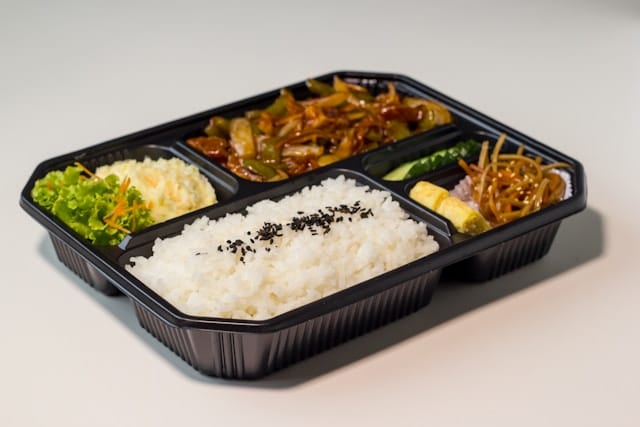How Can UK Food Startups Leverage Subscription Models for Customer Loyalty?

Understanding how to cultivate customer loyalty is crucial for the longevity of your business. Today, we endeavour to delve into how UK food startups can leverage subscription models to boost customer loyalty. As we explore this topic, we’ll look at the subscription business model, its benefits, how it fosters customer loyalty and some real-time examples of businesses successfully implementing it.
The Subscription Business Model
The subscription business model is a business strategy that involves charging customers a recurring fee in exchange for access to a product or service. This model has been adopted by hundreds of different types of businesses, ranging from software services to food delivery companies and everything in between.
In the same genre : What Is the Role of AI in Streamlining UK E-commerce Logistics?
However, it’s not just the prevalence of subscription-based businesses that’s noteworthy. What’s remarkable is the success these companies have had using this model. The recurring revenue generated by subscriptions provides stability and predictability, enabling businesses to plan for growth and expansion.
Benefits of the Subscription Model for Food Startups
Food startups using subscription models enjoy several benefits, including predictable revenue, enhanced customer relationships, and an influx of useful data.
Also read : Strapping material solutions for optimum safety
Predictable Revenue
When customers commit to a subscription, they are agreeing to pay a specific amount of money over a set period of time. This provides businesses with a predictable and steady income stream.
Enhanced Customer Relationships
Subscriptions often promote more interaction between customers and businesses. Regular delivery of products or services keeps your brand at the forefront of customers’ minds, fostering a stronger relationship.
Influx of Useful Data
With a subscription model, businesses can collect and analyse data about customer preferences, behaviour, and purchasing habits. This information can be used to refine marketing strategies, tailor product offerings, and improve overall customer service.
How the Subscription Model Fosters Customer Loyalty
Subscriptions foster customer loyalty in several ways. Firstly, by providing consistent, high-quality products or services over time, your customers will come to trust in your brand. This consistent delivery of value builds a strong brand reputation which in turn promotes customer loyalty.
Secondly, subscriptions can often be personalised based on individual customer preferences. By offering a personalised service, customers feel valued and appreciated, which fosters a sense of loyalty to your brand.
Finally, the convenience factor can’t be overstated. A subscription service that delivers products directly to a customer’s doorstep eliminates the need for them to go out and shop. This level of convenience can create a strong sense of customer loyalty.
Examples of Successful Subscription-Based Food Startups
There are numerous examples of UK food startups successfully using subscription models.
HelloFresh
HelloFresh offers weekly deliveries of fresh ingredients and easy-to-follow recipes. This service not only offers convenience, but it also promotes a healthier lifestyle by providing fresh, unprocessed food.
Gousto
Gousto also offers a food delivery service, but with a focus on sustainably sourced ingredients. What sets Gousto apart is its commitment to reducing food waste. All ingredients are pre-portioned, so customers receive exactly what they need.
SimplyCook
SimplyCook provides customers with recipe kits containing flavour blends from around the world. Rather than delivering fresh ingredients, SimplyCook’s model is based around convenience and variety, appealing to those who want to explore new cuisines but may lack the time or knowledge to do so.
These companies show that running a subscription-based food startup not only is viable, but can be hugely successful. They’ve mastered the art of consistently providing value, personalising their service, and offering convenience, which has resulted in strong customer loyalty.
Implementing a Subscription Model in Your Food Startup
If you’re considering implementing a subscription model in your food startup, here are a few key steps.
First, identify your target audience and their needs. What type of food products or services are they interested in? What kind of subscription model would best suit their lifestyle and needs?
Next, create a clear value proposition. Why should customers choose your subscription service over buying products individually or using another service? This could be due to the quality of your products, the convenience of your service, or the unique experience you offer.
Once you have a clear value proposition, it’s time to get the word out. Use different marketing channels to promote your new subscription service. Social media, email marketing, and even traditional advertising can all be effective.
Finally, don’t forget customer service. Excellent customer service is critical to customer retention and loyalty. Make sure you have a plan in place to handle customer inquiries, complaints, and feedback.
Implementing a subscription model in your food startup can be a game-changer. It provides a steady revenue stream, strengthens customer relationships, and gives you a wealth of data to improve your business. By understanding your audience, creating a clear value proposition, marketing effectively, and providing top-notch customer service, you can leverage this model to foster customer loyalty and grow your business.
The Role of Customer Service in Subscription Models
In the realm of subscription-based businesses, customer service plays a pivotal role in customer retention and loyalty. As customers are continually investing in your business through their subscriptions, it is important to ensure they are satisfied with the service and feel valued.
The quality of customer service can be a deciding factor for customers when choosing between multiple subscription services. Therefore, businesses that strive to provide excellent customer service often enjoy higher customer loyalty.
A strong customer service strategy within a subscription model should include prompt and effective responses to customer inquiries, complaints and feedback. This not only helps in resolving issues but also provides insight into areas that might require improvement.
Feedback is a crucial part of the customer service process. It enables businesses to understand their customers’ needs and preferences better, thus allowing them to enhance their product or service offerings. The ability to act on feedback and make necessary improvements also portrays a business as being customer-centric, further boosting customer loyalty.
Moreover, an efficient customer service system can also help in customer acquisition. Happy and loyal customers are more likely to refer your subscription service to others, effectively serving as brand ambassadors.
Therefore, prioritising customer service and continuously working towards improving it is vital for the success of a subscription-based food startup.
Conclusion: The Power of Subscription Models for UK Food Startups
In conclusion, the subscription business model is a powerful tool for UK food startups looking to build long-term customer loyalty. This recurring revenue model provides predictable income, strengthens customer relationships and provides an abundance of useful customer data.
Subscription models typically foster brand loyalty by offering customers high quality, regular and personalised products or services. They offer an added layer of convenience that is hard to beat, by delivering products directly to the customer’s door step.
Successful companies like HelloFresh, Gousto, and SimplyCook have demonstrated the potential of subscription models. They have effectively leveraged the benefits of recurring revenue, enhanced customer relationships, and the multitude of data available through subscriptions to build successful businesses.
However, it’s essential for businesses to keep in mind that a subscription model requires excellent customer service to maintain customer loyalty and satisfaction. Therefore, it’s vital to have a robust customer service strategy in place.
Ultimately, for food startups looking to foster customer loyalty, adopting a subscription model can be a transformative strategy. By understanding your audience, crafting an appealing value proposition, marketing effectively, and delivering superior customer service, businesses can leverage the subscription model to drive growth and success.
